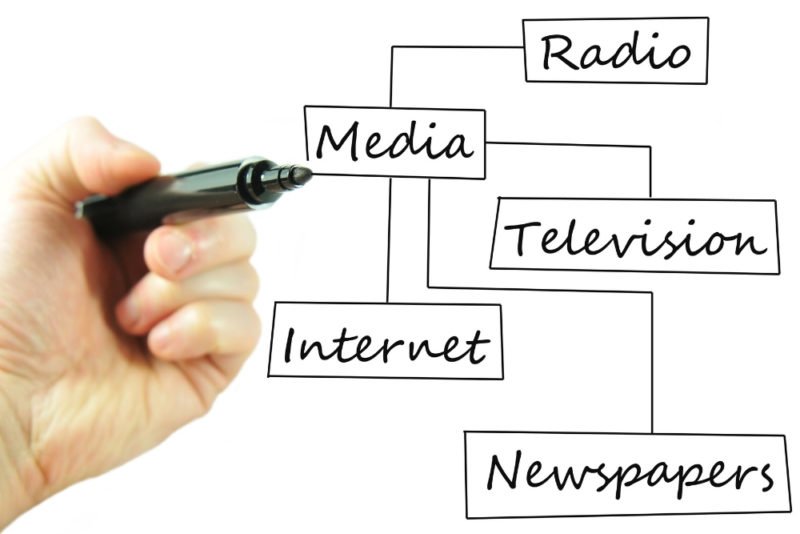
In this post, I’m going to dig into a newly published study on Intuitive Eating that I thought was really interesting. In case you don’t know, there is a lot of research on Intuitive Eating, and if you happened to have the third edition of the book Intuitive Eating and then bought the fourth edition, you may have noticed the tiny detail in the research chapter that the number of studies looking at Intuitive Eating jumped from 25 in 2012 to more than 125 studies in 2020.
How and why we eat isn’t just about the food, and that fact is certainly no less true when you look at Intuitive Eating. This new study really highlights that, I think.
The study is a meta-analysis of 97 previously published studies published in the International Journal of Eating Disorders looked at the psychological correlates of Intuitive Eating. In other words, what psychological/mental health characteristics tend to be present in people who eat intuitively.
The authors found that intuitive eaters were more likely to have positive body image, self-esteem and well-being. That’s awesome news, but what gets really interesting is what’s known as the “direction of causality.”
In other words, when two things are “correlated,” that just means they are both happening at the same time. We don’t necessarily know if Thing X is causing Thing Y, or maybe if Thing Y is causing Thing X. Or, maybe some whole other thing (Thing Z) is causing both Thing X and Thing Y. I know, mind blowing.
To make it more specific to Intuitive Eating:
- If someone becomes an intuitive eater, do they develop positive body image, self-esteem and well being?
- Or, if someone works on building positive body image, self-esteem and well-being, does that cause them to start eating more intuitively.
- Or, is there some other element of life experience that promotes positive body image, self-esteem, well-being AND intuitive eating?

Intuitive Eating isn’t just the absence of disordered eating
Intuitive eating is an adaptive eating pattern. This means that it’s more than simply an eating pattern that’s free from disordered eating behaviors, which would make it sort of neutral. It’s actually an eating pattern that actively fosters health and well-being. That makes it more than neutral, it’s positive.
As the authors of the study point out, “People who eat intuitively do not ruminate about food or dieting, classify foods into either ‘good’ or ‘bad’ categories, or ignore their hunger cues. Instead, they select foods that they enjoy while still enabling their body to function optionally, rely on hunger signals to determine when and how much to eat, and respect their satiety signals by refraining from eating when they are comfortably full.”
So, they don’t just NOT do the negative things, they actively do the positive things.
Intuitive eating is consistently associated with lower levels of disordered and restrictive eating, body image concerns and psychological distress (the negative things), and higher levels of positive body image, social support and quality of life (the positive things).
This is true for many different age groups, weight categories and gender and cultural identities. So it’s not as if it’s just young thin intuitive eaters who reap the positive benefits.

Now for the nitty gritty
Let’s break it down even more. The analysis found that intuitive eaters are significantly less likely to:
- Engage in binge eating and purging
- Restrict their eating (following strict food rules about what, when and how much to eat)
- Eat for emotional reasons
- Eat in response to external cues
- Buy into society’s ideas about an “ideal” appearance
- Be concerned about the size or shape of their body
- Have poor interoceptive awareness
- Experience symptoms of anxiety or depression
Intuitive eaters are significantly more likely to:
- Experience body acceptance from others
- Appreciate their own bodies
- Have body image flexibility
- Practice mindfulness and self-compassion
- Have good self-esteem
- Have social support
- Experience general well-being

The role of body acceptance
I want to highlight the “body acceptance by others” part. In researchland, there is an actual “acceptance model of intuitive eating” that was developed about 15 years ago. This model proposes that the path to intuitive eating begins with positive environmental influences – including general acceptance and body acceptance by others.
Individuals who feel accepted are less likely to feel that they need to obey society’s rules and ideals about how to look. They’re also less likely to feel pressured to restrict their eating (aka diet) to change the size or shape of their body. In other words, when your friends and family accept their own bodies, accept other people’s bodies, and don’t engage in diet talk and body shaming, this helps promote, protect and preserve the intuitive eating skills that we are born with.
The authors pointed to a large body of research demonstrating that people who respect their bodies are more likely to be more tuned into hunger and satiety cues and are more likely to honor those cues.
In the studies included in this meta-analysis, men reported higher levels of intuitive eating than women. The authors didn’t discuss this, but I suspect that this is because men’s bodies are subjected to less scrutiny in our society. (Note that less doesn’t mean none, and diet culture is increasingly trapping men in its nets.)
Yes, men are encouraged to be muscular, and women are encouraged to be thin, the authors point out, but women are subjected to greater day-to-day scrutiny — from themselves and others. If men’s bodies are more accepted, generally, this may make it easier for them to trust their bodies and eat intuitively instead of feeling that they need to restrict their food in order to achieve an “acceptable” body.

Looking beyond the individual
The study found that intuitive eating was also associated with having a lower BMI, but this doesn’t mean that intuitive eating helps you lose weight. Intuitive eating is not a diet, and whether someone loses, gains or stays the same as they learn and practice intuitive eating depends on many factors.
It is entirely possible that eating intuitively rather than following a restrictive diet may support a lower weight, since repeated dieting is associated with weight gain. If intuitive eating is a more sustainable way to eat compared with restrictive diets, then people who eat intuitively will eat a higher quality diet and engage in fewer episodes of overeating or binge eating over time.
However, the authors said it’s more likely that people in thinner bodies have fewer concerns about their body size or shape, and more likely to find that their body is accepted by others, thus supporting eating in tune with internal cues rather than external ones.
Being told that your body is wrong makes it harder for you to trust your body, squashing your inner intuitive eater. That’s why doing the inner work of cultivating body respect and acceptance is important, but so is:
- Setting boundaries around diet talk and body comments from others.
- Curating our media (TV, film, magazines, podcasts, social media) so that we see a more diverse array of bodies and hear/read discussions about health and well-being that leave weight and dieting out of the equation.
- Learning to see the body as something we inhabit, not something that exists to be gazed upon by others.
- Collective effort to reduce weight bias, stigma and discrimination in all sectors of society.
Disclaimer: All information provided here is of a general nature and is furnished only for educational purposes. This information is not to be taken as medical or other health advice pertaining to an individual’s specific health or medical condition. You agree that the use of this information is at your own risk.
Hi, I’m Carrie Dennett, MPH, RDN, a weight-inclusive registered dietitian, nutrition therapist and body image counselor. I offer compassionate, individualized care for adults of all ages, shapes, sizes and genders who want to break free from eating disorders, disordered eating or chronic dieting. If you need to learn how to manage IBS symptoms with food, or improve your nutrition and lifestyle habits to help manage a current health concern or simply support your overall health and well-being, I help people with that, too.
Need 1-on-1 help for your nutrition, eating, or body image concerns? Schedule a free 20-minute Discovery Call to talk about how I can help you and explore if we’re a good fit! I’m in-network with Regence BCBS, FirstChoice Health and Providence Health Plan, and can bill Blue Cross and/or Blue Shield insurances in many states. If I don’t take your insurance, I can help you seek reimbursement on your own. To learn more, explore my insurance and services areas page.






